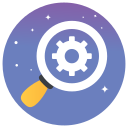Getting Started with Open Source Software Development
Open source software development is an inspiring way to contribute to technological innovation, learn new skills, and connect with a worldwide community. Whether you are a seasoned programmer or a complete beginner, open source offers abundant opportunities for growth and collaboration. This guide provides a welcoming introduction, demystifies the process of participating in open source, and equips you with foundational knowledge to make your first contributions confidently and effectively. Embark on your open source journey and discover how you can make a real impact while building valuable experience.

Setting Up Your Development Environment
01
Installing Essential Tools
Before diving into open source projects, it’s important to install the required tools that facilitate software development. Most projects recommend or require a combination of a text editor or integrated development environment (IDE), a version control system like Git, and tools for managing dependencies and builds specific to the programming language used. Choosing the right tools often depends on the project’s tech stack and your personal preferences. Taking the time to learn basic commands and shortcuts will save you frustration later and make you a more efficient contributor from the outset.
02
Creating Important Accounts
To participate fully in open source, you’ll need to set up accounts on various platforms. The most crucial is a GitHub, GitLab, or Bitbucket account—these services host the majority of open source repositories and act as the hub for collaboration. Your account will represent your identity in the community and track your contributions. Additionally, some projects use communication platforms like Discord, IRC, or Slack, so registering and introducing yourself in these spaces can enhance your involvement and open up avenues for mentorship and support.
03
Getting Familiar with Git and Workflows
An essential skill for any open source contributor is proficiency with Git, the widely used version control system. Understanding concepts like repositories, branching, committing changes, and submitting pull requests or merge requests is key to effective collaboration. Many projects provide contributing guidelines that explain which workflows to follow. By practicing these workflows on your own or through documentation, you’ll become more comfortable with both the technicalities of Git and the collaborative etiquette that open source projects expect from contributors.
Finding the Right Project to Contribute To
The world of open source covers every imaginable domain, from web development and operating systems to data science, machine learning, and creative arts. Start by reflecting on your interests, the programming languages you know, and the areas you’d like to learn more about. You don’t have to be an expert to get involved—many projects value documentation, testing, localization, and design as much as code. By narrowing your focus to topics and skills you’re enthusiastic about, you’re more likely to stay motivated and make meaningful contributions over time.

